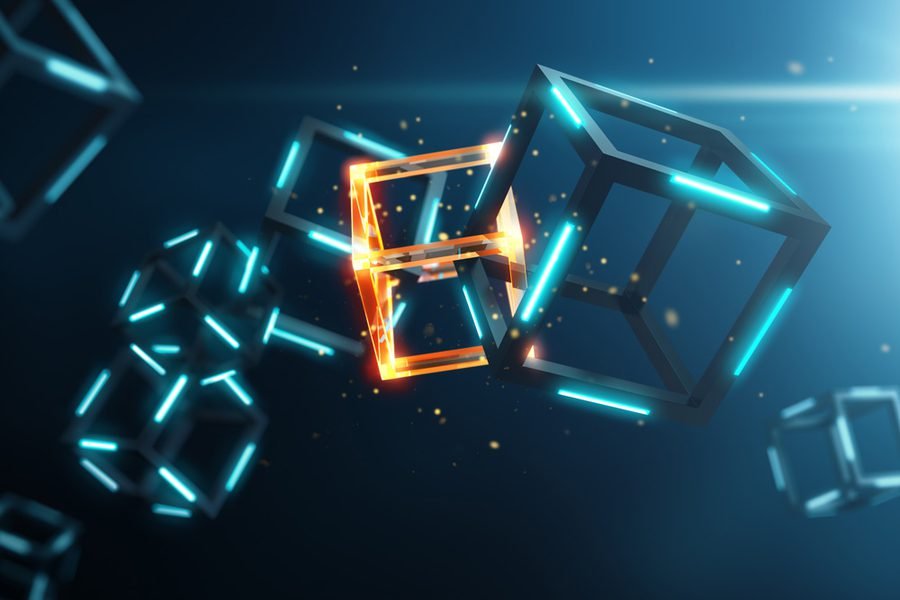Last updated on September 2nd, 2022 at 09:59 am
Blockchain: The New Technology Of Trust?
Blockchain technology was first established in 2008. The sole purpose of its invention was to power and support Bitcoin. Notably, Bitcoin was brought to the world in 2009 though.
Businesses and organizations from various industries, be it from technology or a non-tech background, are now relying on blockchain to keep their data safe and secure. People working on the blockchain are called miners and they also get paid in Bitcoins.
To learn more about blockchain and several aspects of it, keep reading this article. You can also sign yourself up for a blockchain certification course that will help you get a much more in-depth knowledge of this profession.
What is Blockchain?
Blockchain is nothing but the decentralization of databases across all computer networks. It is hugely used in Bitcoin transactions and helps protect the privacy and security of all transactions. It archives this by eliminating all third-party uses which normally interfere with your transactions with banks or other financial means.
Blockchain is generally used by individuals or parties that do not trust each other to interact and transact between them anonymously and securely. In that way, they can collaborate on various goals together which will eventually benefit the entire group.
How does Blockchain work?
A blockchain acts as a database, storing information in electronic form. The database of a blockchain differs from that of a traditional database in how it is actually structured. Blockchain works by assembling and putting data together into small groups, called blocks.
Each individual block helps in storing sets of particular information. When one block reaches a certain storage capacity and cannot hold any more information in it, then that particular block gets closed off and linked to a previously filled block. Thus, creating the data chain known as the blockchain. Then, this process keeps getting repeated again and again.
Whereas a normal database organizes data into tables, a blockchain puts it into blocks that are then linked together. Because these blocks are created in a decentralized manner, all of these individual blocks are given a timestamp as they become immortal and part of the blockchain history.
What are some of the advantages and disadvantages of Blockchain?
As with every technology, there are advantages and disadvantages associated with them. This is true for blockchain technology as well. Below are some of the points explaining it:
Advantages:
- Blockchain is an open-for-all platform, meaning any and everybody can join and access this network without anyone’s permission.
- There is a feature in blockchain called zero-knowledge proof where anybody can verify the accuracy of the data without receiving any information about the data.
- There is no need to worry about losing data because the blockchain keeps duplicate copies of data at each local node, in a decentralized network. All information recorded here is permanent.
- Blockchain is free of censorship as it uses trustworthy nodes for validation and consensus procedures to authorize transactions via smart contracts.
- By eliminating third-party participation in transactions, blockchain helps in reducing errors. It makes the system and transactions within it more efficient, smooth, and speedier.
- Because blockchains do not require a third-party helper to assist in their transaction processes, they save money for businesses while also establishing a relationship of trust with other partners.
Disadvantages:
- As this technology is only a couple of years old, people normally do not know very much about blockchain. Even if they know somewhat about it, because of the lack of technological education, they are hesitant to invest in it.
- Blockchain transactions’ verification uses a lot of energy. According to reports, a whopping 0.3 percent of the world’s total electricity was consumed in the verification process of blockchain transactions in 2018.
- Blockchain miners are required to compute nonce values several times to add the next block in the chain. It is an extremely time-consuming process that must be refined if blockchains are to be used professionally and on a daily basis.
- Blockchain is banned in a lot of countries, concerning environmental reasons.
- As the databases in blockchain are stored in all the nodes around the system, it creates a storage issue. As a result, the more transactions happen, the more storage is required to store all that information.
- There are still some hesitations in some financial institutions, as they are wary of blockchain. There needs to be work done in other technological aspects to fully implement blockchain and utilize it in an industrial setting.
Conclusion
A career in fintech in today’s day and age is all the rage for students and working professionals in different industries alike. If you are interested in pursuing a career in this industry, skills in blockchain technology are a must. If you are already a blockchain developer, then also you can always upskill to increase your salary potential.
Check out one of the best fintech courses in India and sign yourself up for a quick blockchain certification course now!

